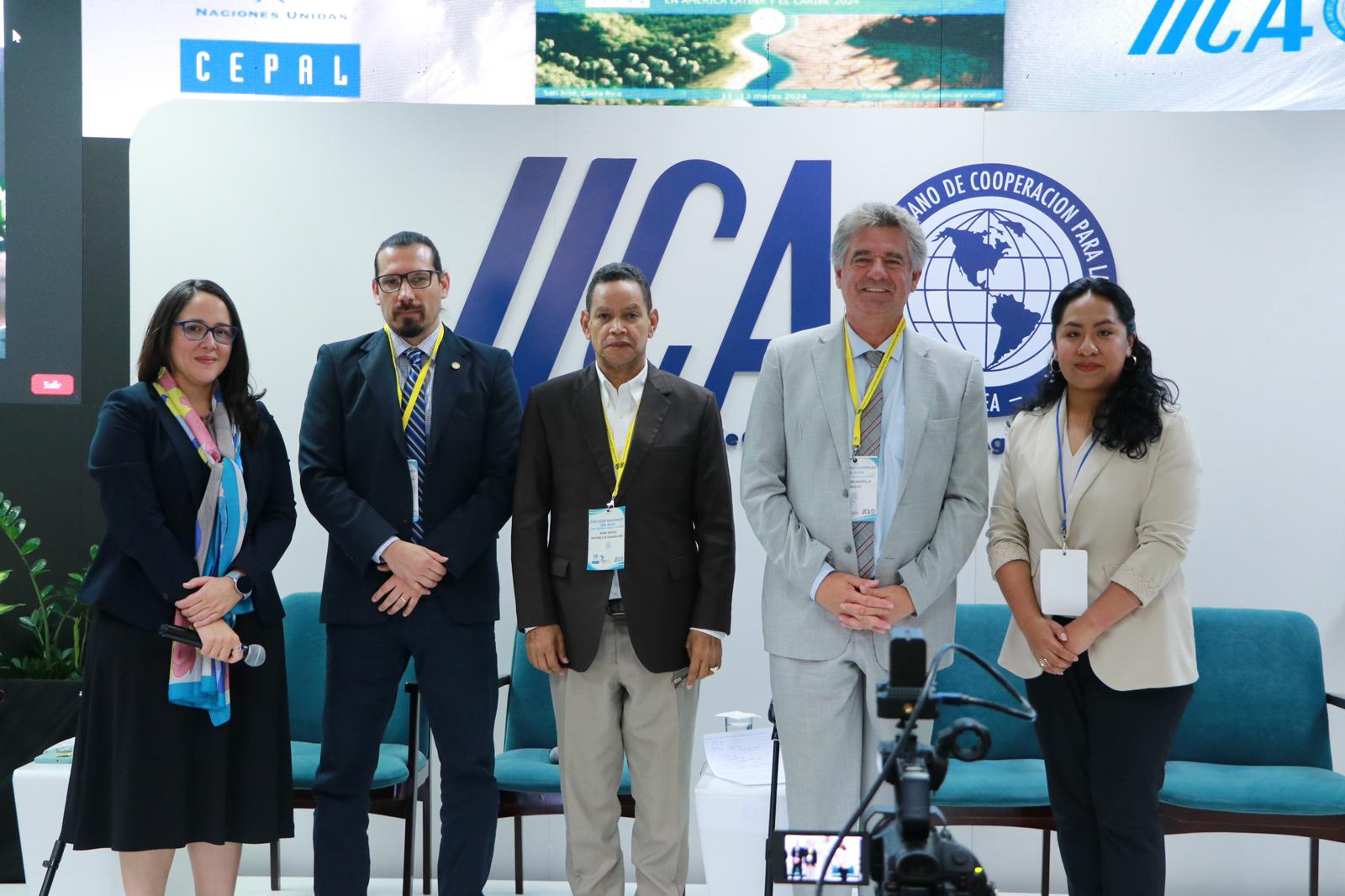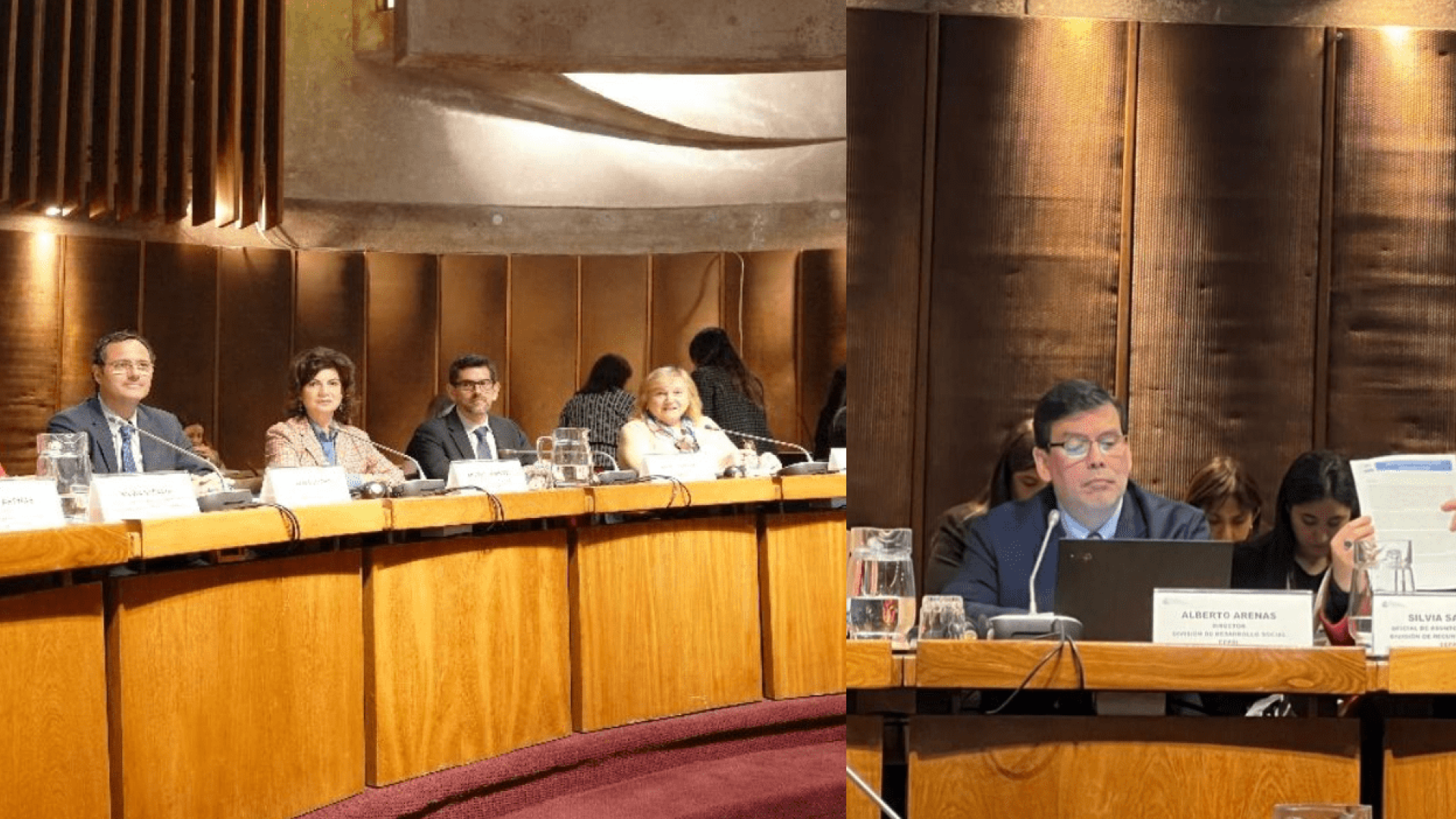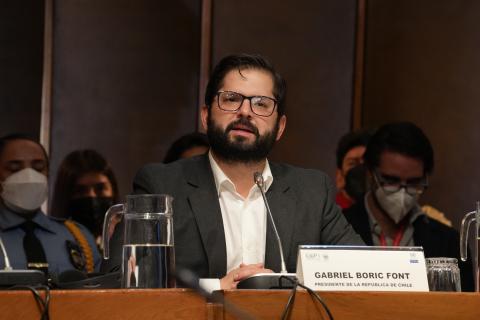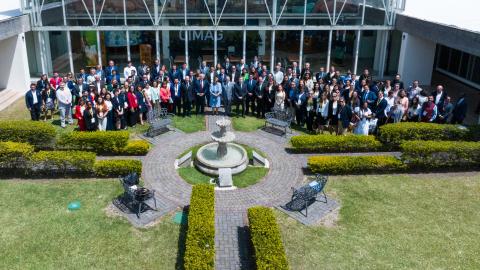Briefing note
Session 6 aimed to provide the context of the challenges the region faces in terms of water and climate, proposing advances in public policies and investment towards a sustainable and inclusive regional water transition. Government representatives from Guatemala, the Dominican Republic, Uruguay, and Bolivia shared their strategies for tackling water security and climate challenges, emphasizing education, water culture, and transboundary cooperation.
-
Mr. Jaime Luis Carrera, Deputy Minister of Water of Guatemala, spoke about the importance of strengthening the protection and management of watersheds through technical tables. He also mentioned that Guatemala has a wastewater regulation, whose implementation they are strongly promoting at the municipal level. He expressed interest in incorporating the circular economy into wastewater treatment, methane recovery, and water reuse for agriculture. Additionally, he acknowledged that one of the challenges they face is interinstitutional coordination.
-
Mr. René Mateo de los Santos, Deputy Minister of Soils and Water of the Dominican Republic, discussed the country's experience in creating an interministerial panel of water sector experts, which is led by the President. He highlighted efforts to improve irrigation efficiency and increase the country's water storage capacity, as well as the financing needs for these activities.
-
Mr. Gerardo Amarilla, Deputy Minister of Environment of Uruguay, recounted how his country faced a water crisis by ensuring safe water and implementing subsidies and quick works.
-
Ms. Marissa Castro Magnani, General Director of Limits, Borders, and International Transboundary Waters of the Ministry of Foreign Affairs, Plurinational State of Bolivia, highlighted the heterogeneity in water distribution and the importance of strengthening governance and knowledge about water resources.
-
Mr. Alejandro Calderón Acuña from the Costa Rican Institute of Aqueducts and Sewers (AyA), Costa Rica, described an incident of hydrocarbon contamination, highlighting the need for updated protocols and the adoption of technology for a quick and effective response.
-
Mr. Jesús Montes Ortíz from CONAGUA, Mexico, presented strategies to address drought and the country's dependence on climate variability for its water supply.
-
Mr. Rubén Alvarado, Ministry of Tourism, El Salvador, highlighted the need for coordination among institutions for tourism development, focusing on private sector involvement and raising awareness about water usage. He also mentioned that water is a cross-cutting axis in development projects and emphasized the creation of the tourism cabinet as a significant step in this direction.
-
Mr. Rodolfo Lacayo Ubau, National Water Authority of Nicaragua, pointed out the lack of payment culture and the low cost of water, which hinders the financing of projects. He referred to the General Law of National Waters of 2007, which established the National Water Authority to regulate the water resource through levies, payments for environmental services, and a national water fund.
-
Ms. Gisela Foratini from ANA Brazil presented two publications that reinforce the idea of sharing specific initiatives on data sharing and evidence-based policies.
-
Mr. Franz Rojas, Director of Water and Sanitation at CAF, presented CAF's work strategy for water security focusing on four pillars: access to drinking water and sanitation, pollution reduction, irrigation, and IWRM.
-
Mr. Sergio Campos, Head of the Water and Sanitation Division at the IDB, mentioned the development of OLAS as an effort to improve the quality and comparability of data on water and sanitation in the region.
-
Ms. Rayén Quiroga, Head of the Water and Energy Unit, Natural Resources Division, ECLAC, pointed out the scarcity of indicators and statistical series in the region, especially regarding water and biodiversity, which has led to a backlog. Water surveys are complex due to their cyclical nature, making it difficult to collect comparable data. She highlighted that the ROSA project aims to provide long-term evidence and promote institutional collaboration to ensure reliable and useful information.
The session concluded with a call to action to improve collaboration between governments, the private sector, and communities, and to invest in technology and education to ensure a sustainable future in water management.
Audience Participation, Both In-Person and Virtual
Throughout the session, various interactive activities through the Slido platform were included to collect opinions and reflections from the audience of the Regional Water Dialogues. This allowed for the participation of both in-person attendees and those who joined virtually. Below are more details on the responses obtained.
Participants from various countries in the region took part in the session, with the majority from Colombia, Mexico, Peru, Argentina, and Ecuador. They mainly came from academia (31%), the public sector (24%), civil society (19%), the private sector (11%), NGOs (7%), international organizations (6%), and others (3%). Moreover, it reflected significant progress towards inclusion and gender equity, with a higher female presence, where women represented 56% of the participants and men 44%. This data highlights the importance of actively involving women in the conversation about water resource management, a crucial step towards achieving gender equality in all areas of environmental sustainability.
In response to the question: "How valuable do you find the efforts of the Water Sustainability Network and Observatory (ROSA) to promote exchange and strengthen capacities around responsible water management in Latin America and the Caribbean?", a notable 69% of participants rated these efforts as very valuable. This result underscores the critical importance of ROSA's work in promoting effective and sustainable water management through knowledge sharing, experience exchange, and capacity strengthening in the region. The positive perception towards ROSA's initiatives indicates a clear valuation of collaborative efforts and the creation of knowledge networks as fundamental tools to address water challenges in Latin America and the Caribbean.
This approach not only facilitates the exchange of best practices and innovative solutions but also promotes a culture of responsible and sustainable water management in the region.
Participants also shared databases or experiences that could serve as inputs for the ROSA Observatory.
These data highlight the ongoing need to strengthen collaboration and knowledge platforms like ROSA, which play an essential role in uniting different actors in the shared effort to ensure water sustainability. Gender-equitable participation and support for initiatives like ROSA are crucial for moving towards water management that is inclusive, efficient, and sustainable for everyone in Latin America and the Caribbean.
For more information:
-
Hear the opinion of experts that attended the Regional Water Dialogues 2024
-
Read the opening words of the Executive Secretary of CEPAL, José Manuel Salazar-Xirinachs
News:
Publications of interest:



